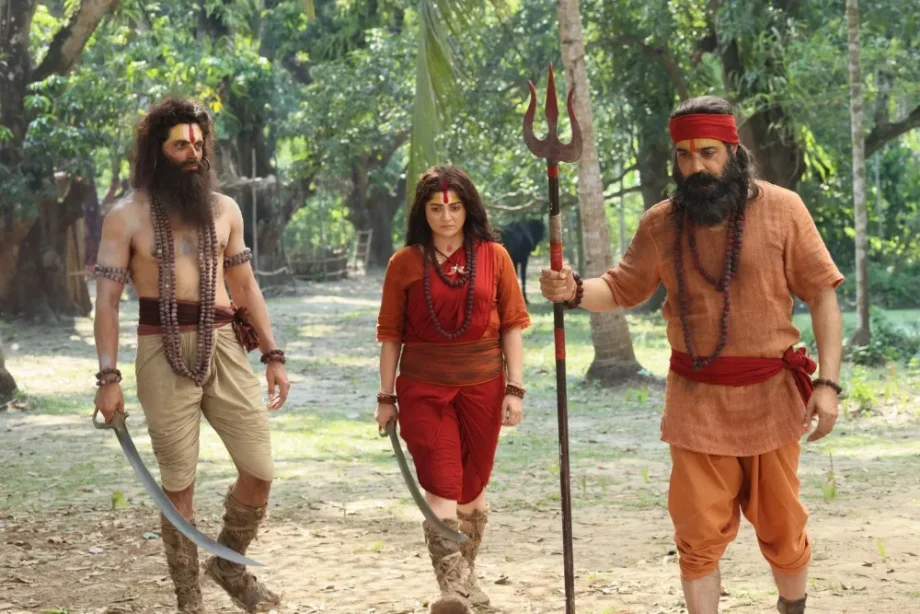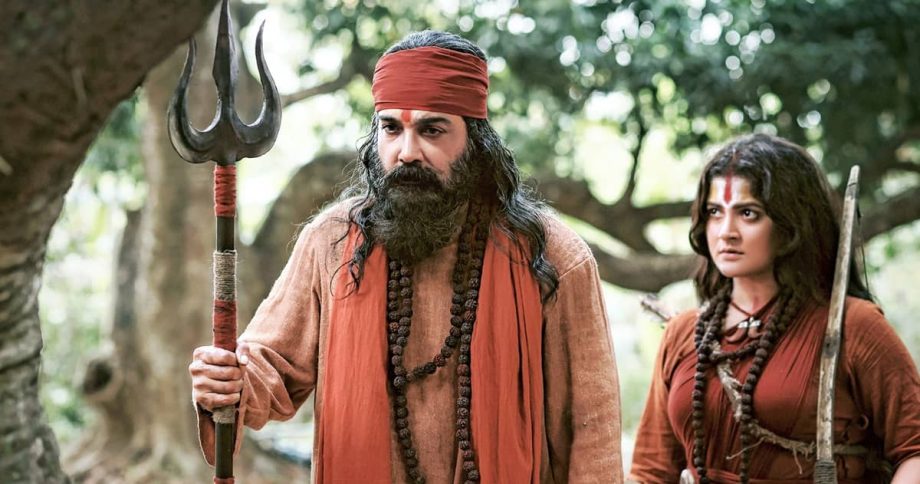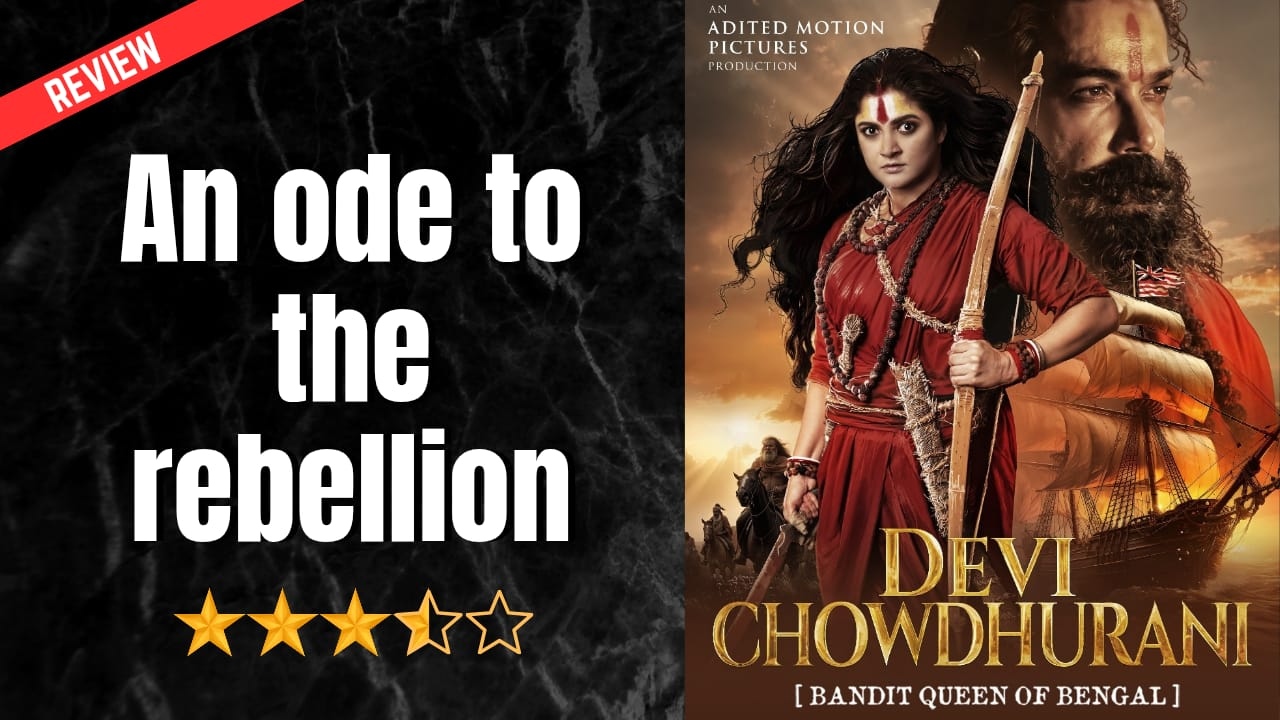Cinema rarely reaches back into forgotten corners of history with this much clarity, and even less often, with this kind of conviction.
Subhrajit Mitra’s Devi Chowdhurani is not an attempt to retell a legend. It is a deliberate act of remembering — of giving space to a woman erased by time, relegated to folklore, and relegated to fiction. Here, she returns not as myth, but as a force.

Srabanti Chatterjee delivers her best work in years. There’s no ornamental bravery in her portrayal of Prafulla, just grit, pain, and the kind of cold resolve that grows in the absence of choice. Srabanti builds her power. Slowly, and with cost.
Prosenjit Chatterjee brings weight to Bhavani Charan Pathak without overshadowing the story’s core. He knows when to lead and when to let others take the front. That generosity of performance strengthens the film.

The British characters are written with restraint, devoid of cartoonish cruelty and overplayed accents. Just systemic violence, bureaucracy, and the quiet machinery of oppression. Alexx O’Nell’s Colonel Monroe is particularly effective: calm, detached, dangerous.
Mitra, wearing multiple hats, keeps the film tightly controlled. There’s a refreshing lack of indulgence. Scenes end when they need to. Dialogue does its job and moves on. The production design is functional, not decorative — it supports the world without making a spectacle of it.
The film’s pacing is patient. Sometimes too patient. There are moments where the weight of the narrative slows things down, but never enough to derail it. The script trusts the audience’s intelligence and doesn’t explain more than it needs to — a rare thing in historical dramas.
Bickram Ghosh’s score is purposeful and largely disciplined. It complements rather than commands, allowing the silences to speak where needed. That’s a sign of confidence — both in the music and the story.
Devi Chowdhurani doesn’t try to be universally palatable. It doesn’t bend over backwards to modern tastes. It does what it came to do: restore dignity to a character’s history half-remembered. And in doing so, it leaves you with something far more valuable than just a spectacle — it leaves you with questions.
This is not a film that demands applause. It demands attention. And it deserves it.

